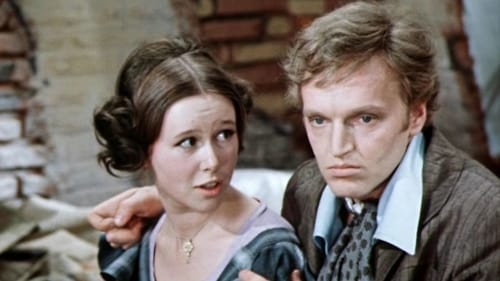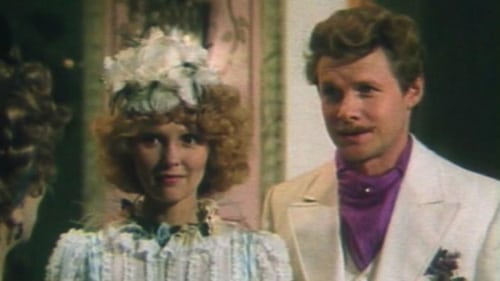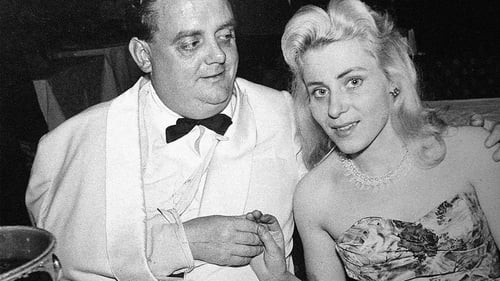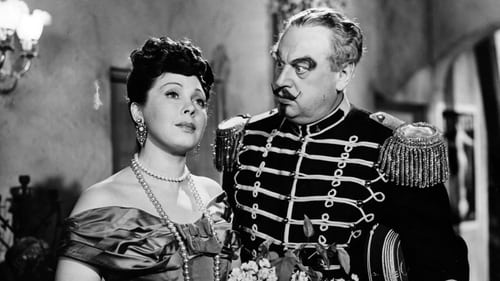Hoheit tanzt Walzer (1935)
Género : Música
Tiempo de ejecución : 0M
Director : Max Neufeld
Escritor : Max Neufeld
Sinopsis

Performances from Pamela Coburn, Brigitte Fassbaender, Janet Perry, Eberhard Wachter, the Choir und Ballet der Bayerischen Staatsoper, and the Bayerisches Staatsorchester. Rosalinde, wife of Eisenstein, is having an affair with Alfred. Eisenstein is due to begin a prison sentence the next morning, and the prison governor, Frank, is expected to collect him at any moment. However, Eisenstein allows himself to be talked into attending a fancy dress ball by Dr Falke, and when Frank arrives to find Alfred with Rosalinde, he assumes him to be Eisenstein and carts him off to prison.

Eisenstein gets in trouble for shooting a grouse. He is told that he must go to prison for his crime. However, his friend has invited him to an aristocratic ball. Eisenstein, despite being married, wants to go to the ball to meet women. Eisenstein lies to his wife. He tells her that he is going to prison but actually he goes to the ball. His story arises the suspicion of his wife. His wife devises a plot to catch her womanizing husband.

This film is the first adaptation of an operetta written by Ukrainian composer Mykola Lysenko. It follows the trials and tribulations of Natalka and Peter (Petro). The sweethearts planned to get married; however, Natalka's father does not approve of the marriage because Petro was not affluent enough to keep Natalka in the manner he thought that she should be kept. Petro goes off to earn the required fortune.

París, 1925. Georges Valandray, un próspero hombre de negocios, cree que es el primer y único hombre en la vida de su esposa Gilberte; ignora que ella estuvo casada con un americano llamado Eric Thomson. Este secreto está a salvo, pues sólo lo conoce la hermana de Gilberte. Pero, un día, Thomson llega a París para hacer un negocio con Georges, y la tempestad estalla cuando Thomson confiesa que quiere volver con Gilberte a cualquier precio.

Vienna, Austria, late 1870s. After suffering an irreparable misfortune, the Austrian composer Johann Strauss Jr. (1825-99), the Waltz King, falls in love with a ballet dancer, which disappoints the famous operetta singer Marie Geistinger…

Ballet for TV by Flemming Flindt and Eugène Ionesco with music by Thomas Koppel played by Savage Rose. First broadcast in 1971. The ballet was first performed by the Danish Royal Ballet, first as a TV show on the Danish public service channel called DR in 1971, then as a performance at the Danish Royal Theatre in 1972. The main part was danced by Vivi Flindt, and Flemming Flindt also starred. The ballet caused quite a stir, partly because of its spectacular nude dancing, but also the catchy music, published both complete on vinyl (which double-lp) and in abbreviated form on vinyl and CD.

A story of three struggling artists: a painter, a poet, and a composer, living in a bohemian Montmartre district of Paris. They help a poor flower girl, Violette, to find shelter, when she is thrown out by her landlord.

Silva Varescu, a self-sufficient and professionally successful cabaret performer from Budapest, is about to embark on a tour of America. Three of her aristocratic admirers, named Edwin, Feri and Boni, prefer her to stay. Edwin, unaware that his parents have already arranged a marriage for him back home in Vienna, orders a notary to prepare a promissory note of his expected marriage to Silva within ten weeks.

A film about Johnny Bode. Schlager diva, Operetta hero, filth musical innovator, enfant terrible, compulsive liar and amoral rogue. Johnny Bode (1912-1983) was very successful in Sweden and Europe. Yet he is today almost completely forgotten. Why? His life was so overwhelming, glamorous, fast and bizarre. So un-Swedish. He became fascinated by the nazism. Was arrested by the Gestapo and detained at Grini concentration camp in Norway. For five weeks. After the war he moved to East Berlin and proclaimed himself a dear friend of the GDR. Later he was deported and returned to Sweden. A time of fencing and small crimes followed. Escaped to Brussels at first and later Vienna. He was, as Juan Delgada, hired by the Vienna Opera to create new operettas. And was very successful. Johnny Bode died exhausted alone and abandoned in Malmö during the summer of 1983.

Celestin is the singing teacher in a monastery and Denis is one of her students. They both dream about the life outside. (It's a Swedish version of the famous vaudeville-opérette "Mam'zelle Nitouche").








